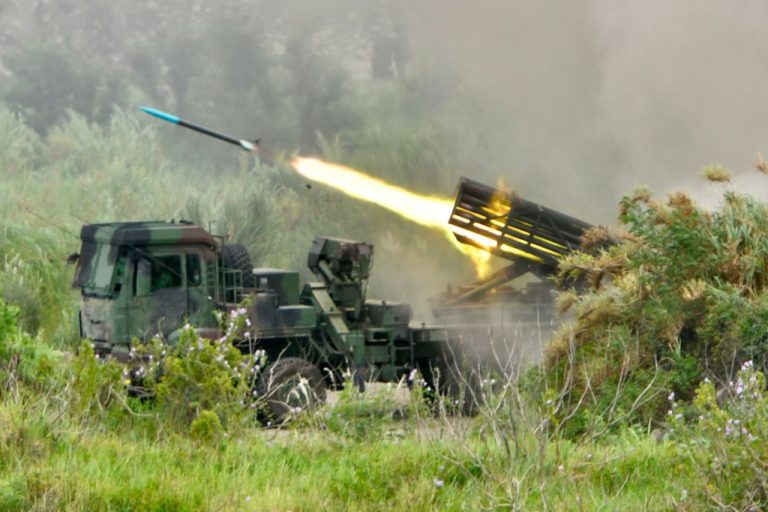Taiwan recently revealed that it has initiated mass production of a long-range missile in an attempt to build up military capacity to ward off threats from the Chinese Communist Party (CCP).
The democratic and independent island nation is currently modernizing its military and focusing on developing technologies that can target critical People’s Liberation Army and Navy (PLA and PLAN) assets, such as military bases located deep inside the mainland. Despite its smaller military might, Taiwan hopes that creating strategic strike weapons will discourage Chinese aggression.
While answering questions in the parliament, Taiwan’s Defence Minister Chiu Kuo-cheng stressed that the top priority of the island’s defense plan was to develop long-range, mobile, and accurate attack capabilities. He pointed out that the National Chung-Shan Institute of Science and Technology, a state-owned institution, has “never stopped” researching such weapons.
Leng Chin-hsu, the institute’s deputy director, revealed that one such missile is already in production, with three other long-range missiles in the development phase. Leng refused to provide additional details about range capabilities, saying that it was “not convenient.”
The CCP regards the Republic of Taiwan as a wayward province of its territory rather than an independent nation, and has even threatened to annex it by force. In January, Defence Ministry spokesman Wu Qian stated that any formal declaration of independence by Taiwan’s government could trigger a war, “We warn those ‘Taiwan independence’ elements – those who play with fire will burn themselves, and Taiwan independence means war.” By manufacturing long-range missiles, the Party may perceive the act as Taiwan indirectly declaring its intentions to resist communist assimilation.

Success
You are now signed up for our newsletter
Success
Check your email to complete sign up
Taiwanese President Tsai Ing-Wen warned at a recent meeting that Taiwan’s government should never make the mistake of trying to appease the CCP, “Taiwan faces tremendous external pressure. We’ve been targeted by China over and over again. Taiwan’s confidence to stand up to China has almost worn away…If we choose to please China, Taiwan will be turned into a second Hong Kong for sure.”
Chung-Shan Institute also carried out a series of surface-to-surface missile tests in January. The institute stated that the tests of its Hsiung Feng IIE cruise missile system were successful even at the “highest trajectory altitude of infinite.” Taiwan’s decision to strengthen attack-based missile assets marks a shift away from its traditional focus on defending the island from a mainland invasion.
President Tsai highlighted the need for an “asymmetrical” deterrent against China that involves hard-to-detect mobile equipment capable of hitting targets far away from the island’s coast.
Last summer, the Taiwanese government conducted an in-depth analysis of military tactics against China under the “Joint Theater-Level Simulation System” and found that they would need at least 1,200 anti-ship missiles to defeat a Chinese invasion fleet. Even with an assumed 50 to 70 percent rate of accuracy, these missiles are expected to sink hundreds of PLAN ships, stopping a Chinese invasion in its tracks.
However, due to budget constraints and supplier delays Taiwan may not be able to amass enough missiles to fully arm its forces until 2025 or 2026.
US and Taiwan intensify coast guard cooperation efforts
Meanwhile, Taiwan recently signed an agreement with the United States, in which both countries signed a memorandum of understanding establishing a working group to “improve communications, build cooperation, and share information” on coast guard-related activities. The deal is aimed at confronting China’s increasingly aggressive maritime activities in the region.
When Taiwan Premier Su Tseng-chang was asked about the new agreement, he pointed to a Chinese law passed in January that granted its coast guard fleet more freedom to fire at foreign vessels. “China’s coast guard law is shocking to its neighboring countries… So countries are working together based on shared values in an effort to maintain regional peace and stability,” he told reporters.
Follow us on Twitter or subscribe to our email list














